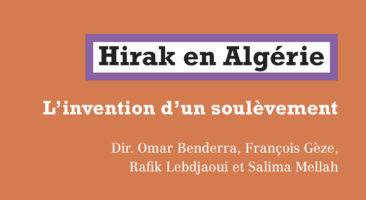Algeria’s Legislative Election Results: Small Gains for Opposition Parties but Still Irrelevant
The North Africa Journal: May 19, 2007
http://www.north-africa.com/opensource/story1-may1807.htm
With a low turnout of just over one third of the voting population, or less than 7 million, the legislative elections in Algeria did not generate popular excitement as many politicians wished. This is perhaps an indication that the results, as they turned out, were already expected by the average voter, hence keeping a majority of them away from the voting booth.
Nearly 19 million eligible voters were expected to take part to the elections meant to select their representatives in the new legislative assembly. A total of 12,229 candidates took part to the election process through 1,144 electoral lists. Campaigning took 20 days to complete in an environment characterized by lack of interest among the average voter. In all, 24 political parties took part to the competition in addition to 102 independent lists combining 986 candidates. There were also a number of new tiny parties, the sort of political organizations that tends to emerge during elections events only to further muddy the landscape, before disappearing afterward.
Despite massive support they have received from an array of organizations, mainstream parties, in particular the ruling FLN and its nationalist rival RND, failed to spark excitement and attract the usual voter attention. During their election campaigning, and fearing a collapse of voter participation, the competing parties and their candidates have been constantly calling for voters to turn out en masse.
Such failure to attract voters was the result of political parties’ weak campaigning strategies and their inability to articulate political programs that resonate with voters. This was the case of virtually all political parties, regardless of their ideologies. Many observers speculated that the French presidential elections were a distraction as Algerians may have been more attracted to the debate occurring in France and less interested in those happening at home.
The outcome was not surprising. While no single party obtained a majority of its own, the group of parties that represents the so-called Presidential Alliance won the contest, despite having 15% less seats than in the previous assembly. In all, this outcome can be interpreted as another victory for President Bouteflika. The statistics show that the National Liberation Front Party (FLN), which is led by Prime Minister Belkhadem, took the lead with 136 seats of the 389 available in the assembly, although losing 66 seats. This outcome is certainly troubling for the FLN, which could loose the prime minister position in a government reshuffle expected in the next days.
Ahmed Ouyahia’s National Democratic Rally (RND) followed with 61 seats, up from 43 and the Islamist Movement of Society for Peace (MSP) grabbed 52 seats, up from 38. As a political block that supports the president, this trio now controls 64% of the nation’s legislative assembly, giving an enormous majority to the governing coalition, again despite a net loss of 44 seats. As such, in the coming legislative cycle of five years, political power will remain in the hands in of the presidential coalition.
Although this outcome should be considered business as usual in the Algerian political landscape, it is worth noting that as a group, independent candidates won 33 seats, making them the fourth biggest player after the governing coalition parties. The position of the other political parties though not deteriorating is as equally irrelevant to the legislative agenda as in the past. Not only the ruling coalition has a majority position, but it can certainly convince easily many independent candidates to endorse its legislative agenda.
In the periphery, the gains made by the extreme leftist Workers Party of Louisa Hanoun should be acknowledged. This party that defines itself as affiliated to the teachings of Russia’s Trotsky gathered 26 seats, compared to the 21 in the outgoing assembly.
Among the parties that essentially represent the Kabylie region and the ethnic Imazighens, the RCD party won 19 seats, marking its return into the assembly after several years of a voluntary absence in protest against the government’s ethnic policies, and the call for boycott from the Socialist Forces Front (FFS). As such, the FFS will not be represented in parliament.

